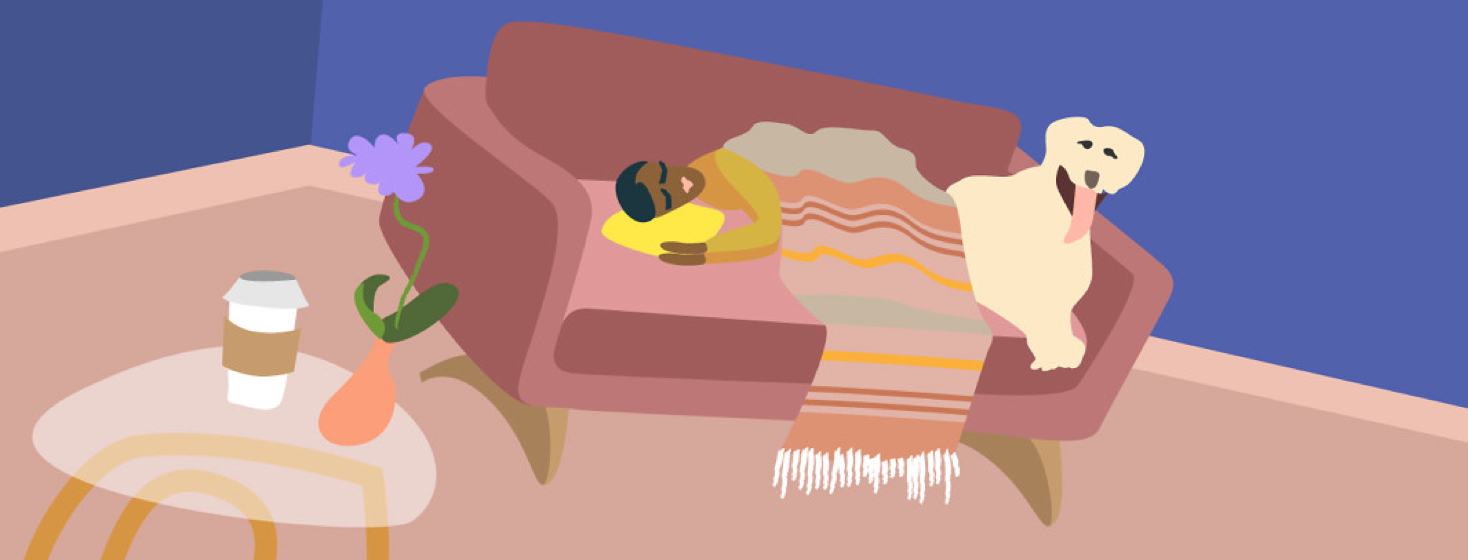Naps – Friend or Foe for the Insomniac?
I have struggled with sleeping consistently or restfully at night since I was a child. I’ve long since gotten used to living my days in somewhat of a constantly drowsy state – fluctuating between trying to stay awake and deciding when to sleep.
Insomnia worked to my advantage in college
I first began playing around with the idea of napping in college, when classes were easier to schedule in blocks and no longer required a standard 7:30 AM to 3:30 PM schedule. Most nights, I was up late studying or completing assignments, and it wasn’t common for me to go to sleep before midnight. Sometimes, that was stretched to 2 to 3 AM based on necessity.
I often had to be up for work or for a class a few hours later, so even if I fell asleep impossibly fast, and slept solidly, I wasn’t getting a ton of rest. I carried this “hustle” like a badge of honor, and for the first time in my life felt like I could “use” my insomnia to my advantage.
Relying on power naps
Back then, I mostly had the option for what I used to call power naps – about an hour time window where I could walk from campus back to my dorm, change into something cozy, set an alarm for 20 to 30 minutes, and immediately pass out.
It seemed that I was so tired from the chronic sleep deprivation that I didn’t struggle to doze off, and my alarm kept me accountable to about 1 REM cycle. Sometimes I woke up groggy or disoriented, but most of the time, I felt like I got a boost of energy and could power through until that night’s bedtime.
I loved long naps too
Now, don’t get me wrong, when the opportunity for a leisure nap happened, I loved it. I still fell asleep fairly quickly, I’d just let myself wake up without assistance. Sometimes I’d feel crabby or out of sorts, sometimes I’d feel relaxed. It was a gamble, but I was usually too tired to care what the outcome would be.
Transitioning to corporate life
When I secured a full-time day job after graduation, the ability to nap regularly disappeared. To be honest, I found myself consuming much more caffeine. I could go to bed much earlier than when I was in school – say, around 10 PM, and usually had around 8 hours under the covers.
But, my insomnia became more serious then. Without medication, I would lay awake staring at the ceiling for hours, frustrated that I wasn’t sleeping and wondering what I was doing wrong. Restless and upset, I’d find myself fighting the imaginary enemy that was my sleep disorder, never coming out victorious.
Naps became an option once again
In the last 2 years, I switched from a daily corporate position to working as an independent consultant, contracting on several different projects and starting my own company. I made my own schedule, and thus, the option to nap reappeared.
Instead of feeling grateful, I panicked. Would napping be helpful or harmful to my routine? Would I feel more rested or more desperate for good sleep?
Here’s the truth – I haven’t found the answer
I don’t nap regularly. Simply put, it’s not the best fit for me. There are some days when I absolutely must close my eyes, or rest, but how I feel when I wake up is a gamble. It became too hard to try to build in a regular naptime or schedule, and the spontaneity made me feel like I was losing control of my insomnia.
If I napped too late in the day, it would prevent me from falling asleep. If I napped earlier on, I might feel more tired and sluggish through the afternoon and evening. It didn’t feel like there was a winning option.
I had survived in a full-time corporate job for several years, and I went back to operating my schedule in a similar manner. Instead of relying on naps, I trusted my routine, my sleep environment, and the other ways I’ve managed my sleep disorder over time.
How have naps impacted you? As an insomniac, do you find them to be your friend or your foe? I’d love to hear below!

Join the conversation